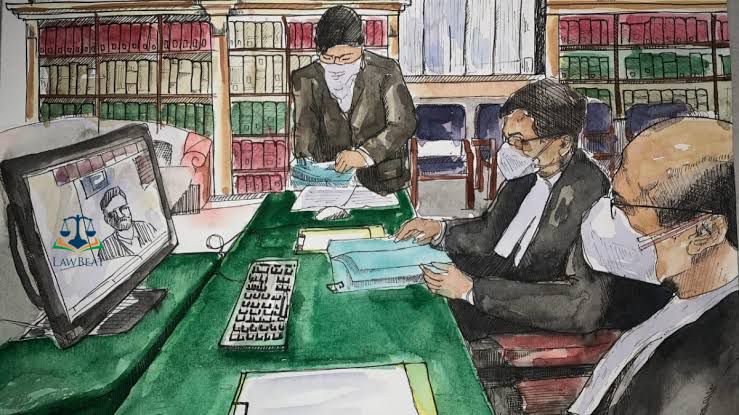"Virtual hearing an exception carved out to meet the extraordinary crisis": 114 Advocates move Supreme Court seeking resumption of complete physical hearing

An intervention application has been filed by 114 lawyers seeking resumption of normal court hearing /complete physical hearing as was prevailing prior to March 16, 2020 before the pandemic.
Filed through members of the Supreme Court Bar Association, the application seeks leave for intervention in the writ petition filed organization of lawyers called "All India Association of Jurists", and legal journalist Sparsh Upadhyay seeking a declaration that the right to participate in court proceedings via video conference is a fundamental right.
A bench of Justice L Nageswara Rao, Justice B.R. Gavai and Justice B V Nagarathna had in September issued notice to the Central Government, four High Courts, the Bar Council of India (BCI) and Supreme Court Bar Association (SCBA) in the said writ petition.
The IA states that virtual hearing is an exception carved out to meet the extraordinary crisis caused due to pandemic but a motivated writ Petition has been filed under the guise of Article 21 to declare the exception as rule and a fundamental right.
Further reliance is placed on Section 153-B of the Code of Civil Procedure, 1908 and Section 327 of the Code of Criminal Procedure, 1973 which requires as a general rule, all civil and criminal cases to be tried in open court.
"....traditionally, the administration of justice requires hearing the cases and complaints of the litigants through their legal representatives /advocates and by the Judges in open courts. ‘Open courts’, refers to proceedings conducted before a court of law in full public view....", submits the application.
Filed through AOR Smarhar Singh, the application further averred that the top Court is determined to revert back to normal open court hearing but the instant ‘motivated Petitions' is nothing but a sinister act to scuttle it.
"...in India, still a sizeable section of lawyers do not have good internet connectivity or the technical know-how of accessing devices. The Courts have tried their best to train lawyers to adapt to the new technology, but the virtual court set-up still carries a lot many problems for the lawyers belonging to the lower rung of the society. For the same reason, well-paid senior advocates want to stay online, but the majority wants to revert to physical hearing."
Arguing that the virtual system is bereft of the ‘human touch’ that physical appearances in courts bring, the applicants submit that the general reaction to the idea of substitution of physical courts by virtual ones was best captured by the Supreme Court when it stated: “If we allow virtual courts that will be sounding the death knell for physical functioning of courts (in India)”.
The advocates have further argued that junior members may loose out on watching and learning from the senior members of the bar, as there is no substitute for practical learnings of the profession which not feasible online.
Referring to practical challenges which are to be addressed, the IA submits that there is a lack of basic IT knowledge amongst lawyers.
"...by sobriqueting ‘virtual hearing’ as litigant friendly there is a clandestine conspiracy by few to monopolize the legal practice of not only Apex Court but courts pan India. Lawyer residing on foreign soil/country is appearing before Apex Court in matters concerning internal security, farmer’s agitation which has international ramification", submit the advocates.
After the IA was mentioned by AOR Singh before a bench of Justices L Nageshwar Rao, BR Gavai and BV Nagarathna, the court has agreed to hear the same with the writ petition.
Case Title: All India Association of Jurists and Anr v High Court of Uttarakhand
